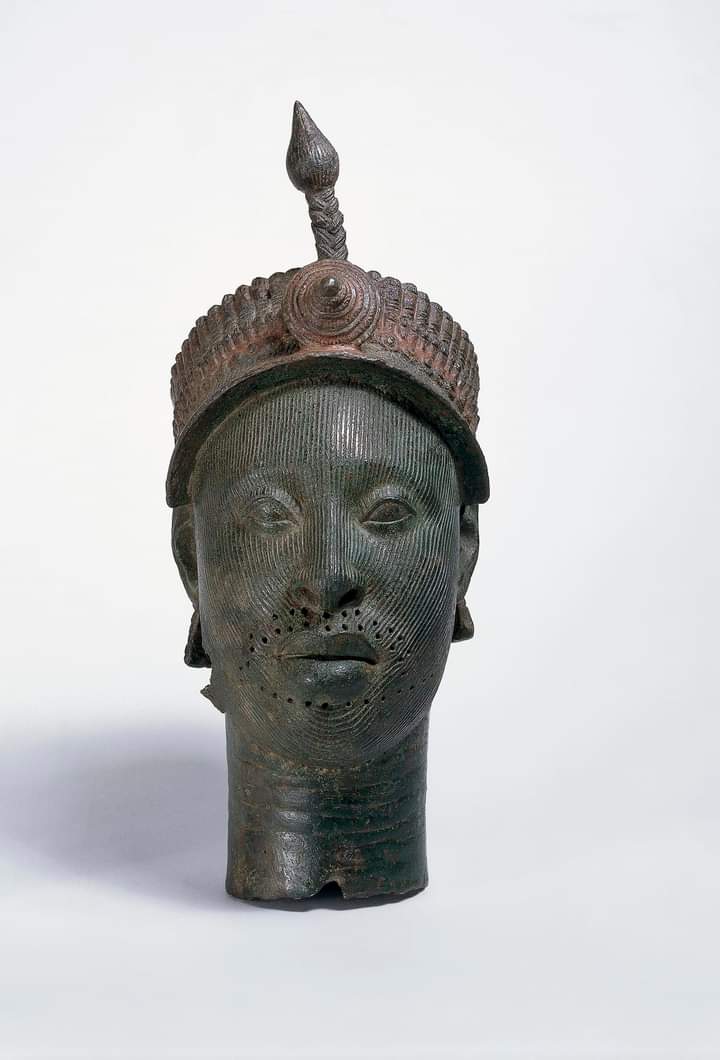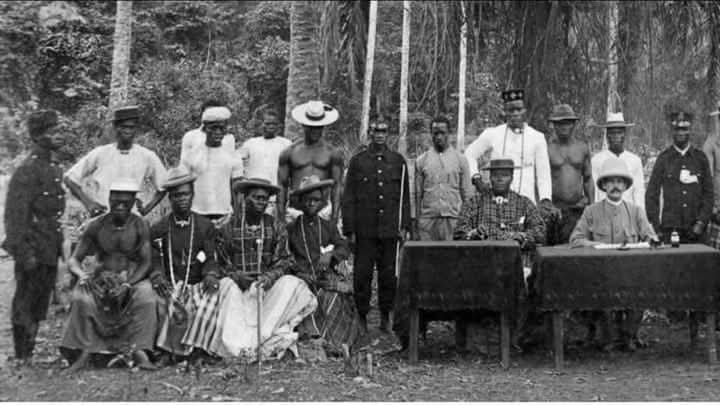MUST KNOWN FACTS ABOUT ITSEKIRI AND AGBASSA LAND
MUST KNOWN FACTS ABOUT ITSEKIRI AND AGBASSA LAND.
(1) The Olu Of Warri is the Overlord of the three Warri local government areas.
(2) Okere an Itsekiri community in Warri have six quarters (Idimi) Idimi Odekporo, Idimi Jakpa, Idimi Odeile, Idimi Ogunobite, Idimi Ajamimogha and Idimi Sobo. Idimi Sobo is the smallest and the part that now have an urhobo kingdom.
(3) Agbassa settlement in Warri are Ejeba, Oteghele, Ogunu, Ekurede Urhobo, Igbudu and Ikpokiti.
(4) The Agbassa people are customary tenant to the Olu of Warri. Agbassa land is under the overlordship of the Olu of Warri. See Suit No. W/41/57, Suit No. W/121/57, Suits No. W/44/1941 and Suit No. W/3/1949
(5) Parliament DID NOT AT ANY TIME nullified the Supreme Court case against Agbassa.
Or made the Ovie of Agbassa overlordship over Agbassa land. The Olu remain the overlordship over Agbassa land. See Suit No. W/41/57
(6) The court could DENY the Agbassa people the right of occupying the land they are in under native law and custom if they FAIL TO RECOGNISE THE OVERLORDSHIP OF THE OLU OF WARRI. See suit No. W/44/1941, The Supreme Court in SC67/1971 & SC327/1972.
(7) Agbassa land case is no longer on trial. It has been decided by the Nigeria Supreme Court and the British Privy council as property of the Itsekiri. THESE JUDGMENT ARE FINAL. – Ometa vs Chief Dore Numa 1934 11 N. L. R. 18, The Supreme Court in SC67/1971 & SC327/1972.
(8) It was Ometa(Agbassa man) that appealed the Agbassa land case that they lost in the Supreme Court of Nigeria to the Privy Council in London where he also lost as the case was dismissed in favour of the Itsekiri. See Ometa vs Chief Dore Numa 1934 11 N. L. R. 18.
(9) It was Judge Jackson who decided the Sapele land case in favour of Okpe-Urhobo in 1941 that decided the Agbassa Warri case in favour of Itsekiri. (1) Warri A Focus on Itsekiri page XXIII and suit No. W/44/1941
(10) Kingship is not what decides ownership of land. Any group of people in Nigeria are allowed to form any kind of association including calling someone their king. This is why there are Igbo and Hausa/ Fulani king in different part of the country. This does not mean they own the land they are on. This applied also to the Agbassa people of Warri, they are and will remain customary tenants under the Olu of Warri forever.
(11) Changing of the name of an area does not change the tittle and ownership of the land. A customary tenant will remain one forever.
(12) The Supreme Court in SC67/1971 & SC327/1972 (consolidated) pp 189-234 (1973) 11SC in 1973 after reviewing the judgemant of Obaseki in the lower courts; the judgement of Webber, and the judgement of the Privy Council in Ometan versus Dore; the judgement of Jackson in 1941 and the judgement of Ademola said:
“In view of these unimpeachable recurring findings by the Courts of competent jurisdiction, there can be no question that the Agbassa, including the Igbudu are customary tenants of the first claimants (that is, the Itsekiri Communal Land Trustees). Their tenure of the land occupied by them is therefore subject to the incident of customary tenancy. It is fool-hardy on the part of the second claimants (that is, Chief Sam Warri Essi for himself and on behalf of the Igbudu people) in the face of such overwhelming evidence and findings of successive courts throughout the years to seek from time to time as soon as there is notice of acquisition and the prospects of a windfall like manna from heaven to relitigate issues which have been clearly determined and laid to rest against them by persisting in the groundless assertion that the people of Agbassa are the absolute owners of the land in dispute which has been conclusively established as forming the land the subject matter of suit No. 25 of 1926”.
(13) In the Supreme Court judgement: (SC328/1972 pp 235-287 (1973) 11 SC ) in 1973, it was said:
“We have already observed that the first claimants (Itsekiri) are not mere reversioners. They are in fact and in law the legal owners of the land in the occupation of the Agbassa Community, who occupy the same subject to the usual incidents of customary tenancy, such as being of good behaviour and not attempting to alienate any interest therein to strangers without the knowledge and authority of their overlord. Any infraction of such incidents would immediately expose the offender to the full rigours of forfeiture which may be granted in a proper case. Instances are not wanting in the law reports of forfeiture having been decreed in certain circumstances… We are satisfied that the approach of the learned trial judge to the issue under consideration was correct and that his decision is unimpeachable. It is right”.
(14) Point 1-13 above can not be proved wrong by anyone. They are indisputably facts. Whoever thinks any of the above is wrong they should add reference that can be verified in their comment just as I added to the points.




